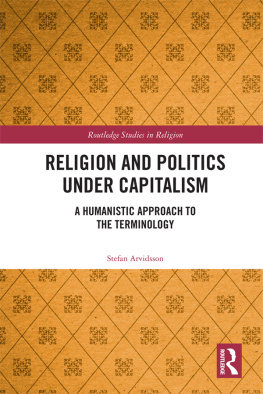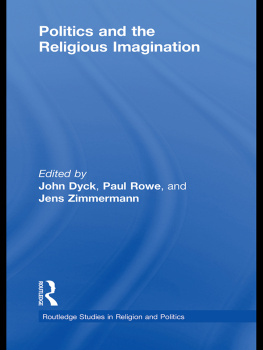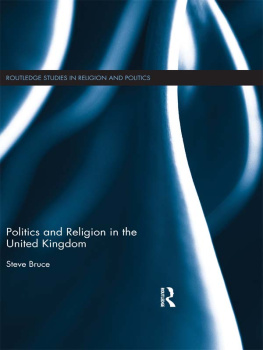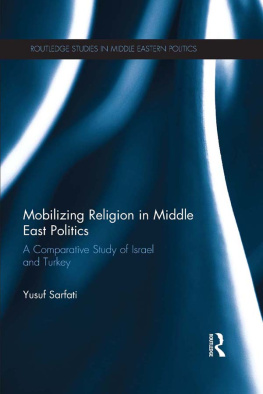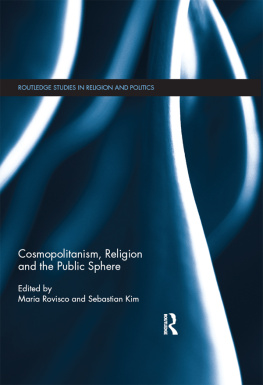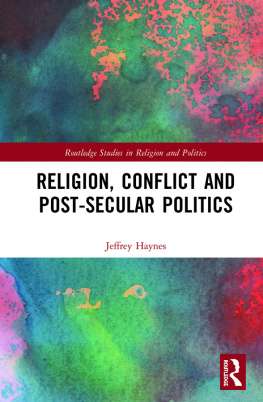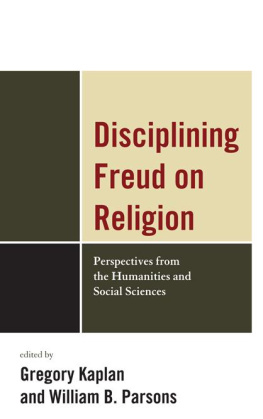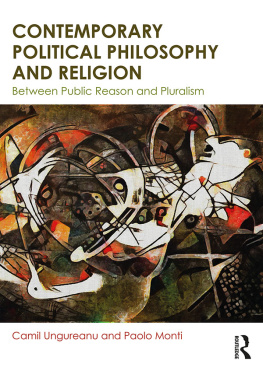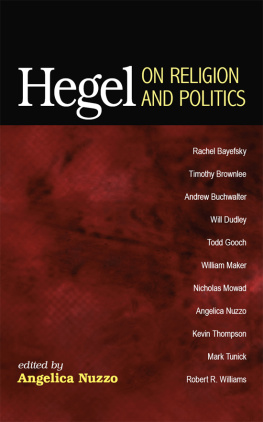Religion and Politics Under Capitalism
This book relates some of the major trends within religion and politics to offer a historical framework with which to assess their interactions and a point of departure for studies to come. The study of the interrelationship between contemporary religious practice and modern politics is divided between several scholarly disciplines, all embracing different terminologies as well as multiple theoretical and philosophical premises. Such diversity of perspectives is to be welcomed, but it can inhibit the ability of academics to form a cohesive and coherent dialogue around the subject.
While critically assessing the historic, sociological, political, theological and anthropological aspects of religion and politics, the book demonstrates the crucial importance of recognising the capitalist economy as the framework for understanding their dynamic relationship. Moreover, it claims that humanism is the proper lens through which to critically engage with religion in society and must be the favoured point of departure for any study within the field.
This book offers a unique overarching viewpoint for of all these divergent scholarly trends and traditions. As such, it will be of significant use to academics in religious studies, political science, sociology and anthropology.
Stefan Arvidsson is Professor in the Study of Religions at Linnus University, Sweden. He is the author of several books, including Aryan idols: Indo-European mythology as ideology and science (2006) and The Style and Mythology of Socialism: Socialist Idealism, 18711914 (2017), and editor, together with Jakub Bene and Anja Kirsch, of Socialist Imaginations: Utopias, Myths, and the Masses (2018).
Routledge Studies in Religion
Religious Boundaries for Sex, Gender, and Corporeality
Edited by Alexandra Cuffel, Ana Echevarria and Georgios T. Halkias
Christian Mysticisms Queer Flame
Spirituality in the Lives of Contemporary Gay Men
Michael Bernard Kelly
Treating the Body in Medicine and Religion
Jewish, Christian, and Islamic Perspectives
Edited by John J. Fitzgerald and Ashley John Moyse
Hinduism and Hindu Nationalism Online
Juli L. Gittinger
The Desecularisation of the City
Londons Churches, 1980 to the Present
Edited by David Goodhew and Antony-Paul Cooper
Government Surveillance of Religious Expression
Mormons, Quakers, and Muslims in the United States
Kathryn Montalbano
Religion and Human Security in Africa
Edited by Ezra Chitando and Joram Tarusarira
The Paranormal and Popular Culture
A Postmodern Religious Landscape
Edited by Darryl Caterine and John W. Morehead
Religion and Politics Under Capitalism
A Humanistic Approach to the Terminology
Stefan Arvidsson
For more information about this series, please visit: www.routledge.com/religion/series/SE0669
Religion and Politics Under Capitalism
A Humanistic Approach to the Terminology
Stefan Arvidsson

First published 2019
by Routledge
2 Park Square, Milton Park, Abingdon, Oxon OX14 4RN
and by Routledge
52 Vanderbilt Avenue, New York, NY 10017
Routledge is an imprint of the Taylor & Francis Group, an informa business
2019 Stefan Arvidsson
The right of Stefan Arvidsson to be identified as author of this work has been asserted by him in accordance with sections 77 and 78 of the Copyright, Designs and Patents Act 1988.
All rights reserved. No part of this book may be reprinted or reproduced or utilised in any form or by any electronic, mechanical, or other means, now known or hereafter invented, including photocopying and recording, or in any information storage or retrieval system, without permission in writing from the publishers.
Trademark notice: Product or corporate names may be trademarks or registered trademarks, and are used only for identification and explanation without intent to infringe.
British Library Cataloguing-in-Publication Data
A catalogue record for this book is available from the British Library
Library of Congress Cataloging-in-Publication Data
Names: Arvidsson, Stefan, 1968 author.
Title: Religion and politics under capitalism : a humanistic approach to the terminology / Stefan Arvidsson.
Description: Abingdon, Oxon ; New York, NY : Routledge, 2019. | Series: Routledge studies in religion | Includes bibliographical references and index.
Identifiers: LCCN 2019003043 | ISBN 9780367147884 (hardback : alk. paper) | ISBN 9780429053429 (ebk.) | ISBN 9780429624865 (pdf) | ISBN 9780429624421 (epub) | ISBN 9780429623981 (mobi)
Subjects: LCSH: Religion and politics. | CapitalismReligious aspects. | Humanism.
Classification: LCC BL65.P7 A75 2019 | DDC 201/.72dc23
LC record available at https://lccn.loc.gov/2019003043
ISBN: 978-0-367-14788-4 (hbk)
ISBN: 978-0-429-05342-9 (ebk)
Typeset in Sabon
by Apex CoVantage, LLC
Contents
Up until the 1980s, many scholars of religions thought that religion was about to wither away. In private, and sometimes not so privately, they argued about whether this was a good or a bad thing. Was religion akin to divination, alchemy and trepanation, means to deal with the troubles in life, that had been made obsolete by modern science and medicine? Was it intimately interrelated to things such as theocratic rule, hierarchic conservatism, misogynist witch-hunting and angst-ridden images of eternal torments, and thus something that at last and for good had been replaced by modern politics, culture and morals? Or is religion, on the contrary, a precious, pristine gem that contains the wisdom of humankind, the amassed guidelines to a truly flourishing life a gem that now is threatened to be crushed under the juggernaut of urban industrialisation, instrumental rationality and short-sighted hedonism?
Much has changed since the 1980s. The perceived withering way of religion has been replaced by the idea that we are now living in the era of rebirth of religion. While this rebirth is to be found in areas such as personal development, recreation, therapy and healing manifesting itself in various forms of spirituality, New Age, yoga training, etc. it is its appearance in politics that has made religion conspicuous again. For the past few decades, it has been an urgent task for scholars from different fields to try to get a firm terminological grasp of this reborn creature, this religion-and-politics hybrid regardless of whether we privately think of it as a dangerous freak, or a radiant saviour.
Regrettably, the study of the complicated relationship between modern religion and modern politics lacks systematization, conceptual rigour and coherence. I doubt that anyone who has read selections from the large number of texts produced by sociologists, historians, political scientists and anthropologists on this topic would question this appraisal. For example, a term like political religion sometimes means that a religious organisation has developed ambitions, formerly absent, to influence the secular sphere of politics. In other contexts, the term signifies quite the contrary, and indicates hidden religious features within secular political movements. Other disputed key terms include fundamentalism, spirituality, theocracy, civil religion, secularity, religious modernism and mythic politics, which are regularly used without precise meaning and are rarely related to each other in consistent ways. While I just described these terms as disputed, maybe it would be more accurate to say that they do not even reach this point, since people tend to talk only to scholars working within the same tradition and thus are not aware of other usages.

